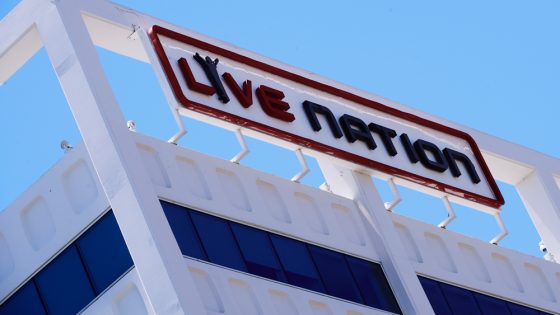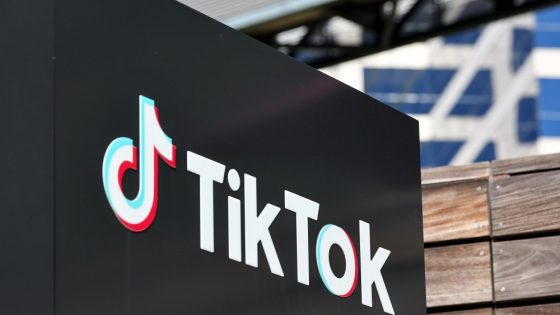Larry Miller is a professor and director of Music Business at NYU Steinhardt. He is the Music Business Association’s Educator of the Year, and producer and host of the Musonomics podcast. Variety welcomes responsible commentary — if interested, contact [email protected].
When the Obama administration approved the merger of Live Nation and Ticketmaster in 2010, regulators anticipated a more consolidated but efficient market resulting from the combination of the most successful concert promoter and the largest ticketing platform.
That vision has largely come true. There is more competition now in primary ticketing than before the merger – Ticketmaster actually has lost market share – and that’s before one considers the creation of a massive secondary ticketing market reshaping the competitive landscape.
That’s why the Department of Justice’s announcement in May that it has served Live Nation under the Sherman Act is so surprising. The lawsuit alleges anticompetitive behavior that hurts artists and fans, and proposes reversing the merger it previously approved.
But breaking up Live Nation Entertainment will do absolutely nothing to lower ticket prices for fans. I say this as a music business educator, analyst and passionate consumer of live music. I do not advise Live Nation, and I receive nothing of value for expressing my opinion in forums like this guest column.
Fans love to hate Ticketmaster, but their anger is misplaced. Artists and their teams set ticket prices and venues set fees – not Ticketmaster. The company, to its credit, has for decades quietly absorbed the ire of fans while implementing artists’ and venues’ pricing strategy at scale and speed. It receives an estimated 5 – 7% of the ticket price for its services.
If U.S. lawmakers and regulators are genuinely interested in making ticket prices more affordable, they should regulate the secondary market. Recently estimated at $22 billion worldwide, the secondary market drives pricing in the primary market. Artists frequently underprice tickets because they want to play for real fans but the massive resale market has disrupted basic supply and demand. Fans racing to get tickets to a favorite artist’s tour must now compete with millions of secondary-market bots that hoover up ticket inventory to the most popular shows and resell them at a multiple of face value. Tickets for Taylor Swift’s “Eras” tour reportedly sold for as much as 70 times over face value. And unlike Live Nation and competitors such as AEG (which produces and promotes Swift’s tours), ticket resellers pay nothing to the artist, venue or promoter.
Australia recently capped ticket resales at 10% over face value, and the U.K. government is considering a similar plan. But here in the U.S., a dozen states —including New York — have recently passed laws that forbid similar caps.
The DOJ alleges that a breakup of Live Nation will open up the market for artists who want to tour. How exactly would that work? More than half of all artist income comes from touring. There were over 10,000 touring artists in North America in 2022, 25% more than in 2016, and not just iconic acts like the Rolling Stones or Bruce Springsteen. The number of young artists on Live Nation-promoted tours who had their first hit in the last ten years and sold more than a quarter million tickets doubled from 2013 to 2023.
The challenge for emerging artists isn’t access to the market. Their challenge is gaining, sustaining, and monetizing fan attention. It is in the artist’s interest to play increasingly larger venues, offering the best fan experiences as soon as demand for their live shows from a paying audience can justify it. I’ve researched how the democratization of music production and distribution carried the promise of reaching multitudes of eager fans at the touch of an upload button. Yet the virtually infinite selection of music available on most streaming platforms has made it more difficult than ever for new artists to break through, especially on the global stage. Economists call that “the tyranny of choice.”
The post-pandemic surge of fans eager to enjoy live entertainment exposed serious cracks in the live music industry. I’ve observed Live Nation to be both an aggressive competitor and an important investor in improving the artist and fan experience. Independent promoters have long complained about the company’s “flywheel” business model, through which the company collects revenue and fees from fans and sponsors and uses its scale and access to capital to lock venues into long term, exclusive agreements. Live Nation has executed its model well — too well, some say. But the symptoms causing fan frustration have little to do with a single company. In focusing on antitrust litigation, Washington may miss an opportunity to ensure a healthy live entertainment ecosystem.
Getting this right is critical – to the artists who rely on touring to make a living, the fans who increasingly put a premium on in-person entertainment, and the millions of Americans whose jobs and communities depend on the economic boost from a vibrant live entertainment ecosystem. But it won’t be solved by a single lawsuit or by focusing on one player in the industry.
To fix the live concert business, we need to be honest about the realities of supply and demand, help artists to secure a greater percentage of their income from touring, and regulate the secondary market. Policymakers should focus on correctly diagnosing the problem instead of deciding on a cure before they understand the symptoms.
Source Agencies


